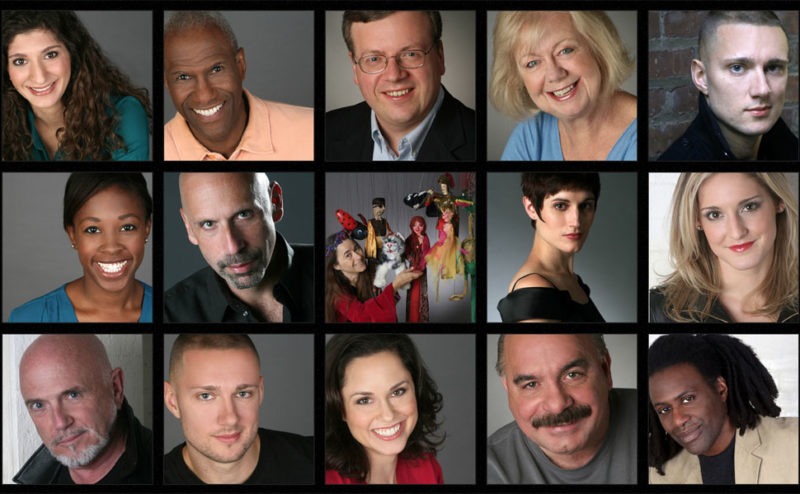
Acting | How To's | New England
Headshots How-To
A guide to getting the perfect casting headshot for your acting portfolio.
Written by Caitlin Arcand | Posted by: NewEnglandFilm.com
Countless acting workshops, years of vocal training, a stacked résumé that has taken you months or years, but are you forgetting the most important thing? The headshot. Here’s a guide to how to find a photographer and get that perfect headshot to sell your look to the casting team.
Countless acting workshops, years of vocal training, a stacked résumé that has taken you months or years, but are you forgetting the most important thing? Your headshot. Whether a beginner to the industry, or a well seasoned professional actor, there is one tool that is crucial to your success, and that is the perfect shot to sell your look to the casting team.
With the world constantly technologically changing, so are the approaches of casting. In today’s industry, with sources like Backstage and NewEnglandFilm.com, more often than not, you find yourself submitting for roles online, making headshots of the utmost importance. They are your first impression to the casting director – the make or break moment in deciding whether they will consider you for the role or not.
And even in situations of actual casting calls, your picture is what sets you apart from the other auditioners. In the words of professional actor Tom Lavallee (Murder University, Millbrook Playhouse), “Your audition puts you there, but your headshot keeps you there.”
With that being said, actors often have questions about headshots: What kind of photographer do I use? What do I wear? What kind of background do I need? But, don’t stress. After talking with New England’s top photographers and two professional working actors, I have cracked the code to achieving the perfect headshot.
Do you headshots really matter in casting?
In short, yes. Headshots are a major part of casting. According to working actress Ana Marie Calise, who has been seen in NBC’s “The Blacklist” says that casting directors more often than not will judge you more off your headshot than your résumé. Photographer and actress Erica Derrickson also emphasizes, “An actor who takes himself seriously has to take their headshot seriously.” With so many roles cast solely on your ‘look’, of course your headshot should be taken just as seriously as your résumé, acting reel or audition.
How often should I have new pictures taken?
Lavalle recommends that new headshots be taken every 2-3 years, unless of course you drastically change the style or color of your hair. Which brings us to one of the most important aspects of headshots: they have to look like you! If you send a casting director your picture, they expect the person in the picture to walk in to the audition room, not someone ten years older or twenty pounds heavier. Often times, people try to make themselves look ‘perfect’ for these photoshoots, but that’s not what directors want. They want you. In the words of Boston photographer Lynn Wayne, “Don’t dress like a lawyer if you’re not a lawyer.”
What should a good headshot look like?
A good headshot should be natural. Derrickson takes this seriously and goes out of her way to create natural responses from her subjects.
How do you choose a photographer?
The first step in your perfect headshot process is choosing a photographer. It is important that you make this decision correctly because they could have your next role in their hands. When talking to Derrickson, she discussed the importance of choosing a photographer that you feel comfortable with, including that, “The photo shoot needs to be about the actor.”
She stressed the idea of building relationships with her actor’s before the shoot, that way she can get a natural performance out of them. Wayne also chimed in on the subject, saying that the shoot needs to be about the actor and the photographer working together. She also mentioned the need for “warm up” time so that the actor can get comfortable in their surroundings. “Comfortable” is definitely the key word in all of this. If you aren’t comfortable with your photographer, how are you supposed to get a good shot?
What makes a shot so special?
It’s all in the eyes according to two of my interviewees. Calise mentioned that your eyes need to give a sense of welcoming, information she picked up while interning at City Headshots. Wayne also argued that eyes are the most important part of the picture. They aren’t something that can be forced by the photographer, the natural emotion has to come from the actor. Derrickson also emphasized the importance of background. In her sessions, she tries to put her subjects in front of backgrounds that make them ‘pop’.
How do you prepare for the shoot?
You’ve found a photographer, scheduled your shoot, now what? Now, you need to prepare! It is always important to check out the photographer’s policies ahead of time, just to make sure you don’t miss anything. According to Derrickson, it is extremely necessary to be well rested before your shoot, “A good session should require energy.” Wayne also agrees, adding in the importance of not changing your look days before the shoot. Nothing like dyeing your hair the wrong color to ruin a photo shoot!
What are the technical considerations for a headshot?
I could go on and on about the importance of looking natural and feeling comfortable with your photographer, but there are also obviously technical features of headshots that have to be followed in order to create the perfect picture. Subjects should always be wearing solid colors, patterns and logos can be distracting and take away from the actor. Most commonly, an 8×10 color photo is standard. Different theaters and production companies may require other variations, but for auditions colored 8×10 is the way to go.
Through talking to these four expert individuals, I have uncovered the secrets behind the perfect headshot! Whether you’re a beginner or a pro, take these words of advice and book your headshot shoot today.It could be the key to your big break!
For more information on the photography of Erica Derrickson and Lynn Wayne, see http://www.lynnwayne.com and http://ericaseye.com.









